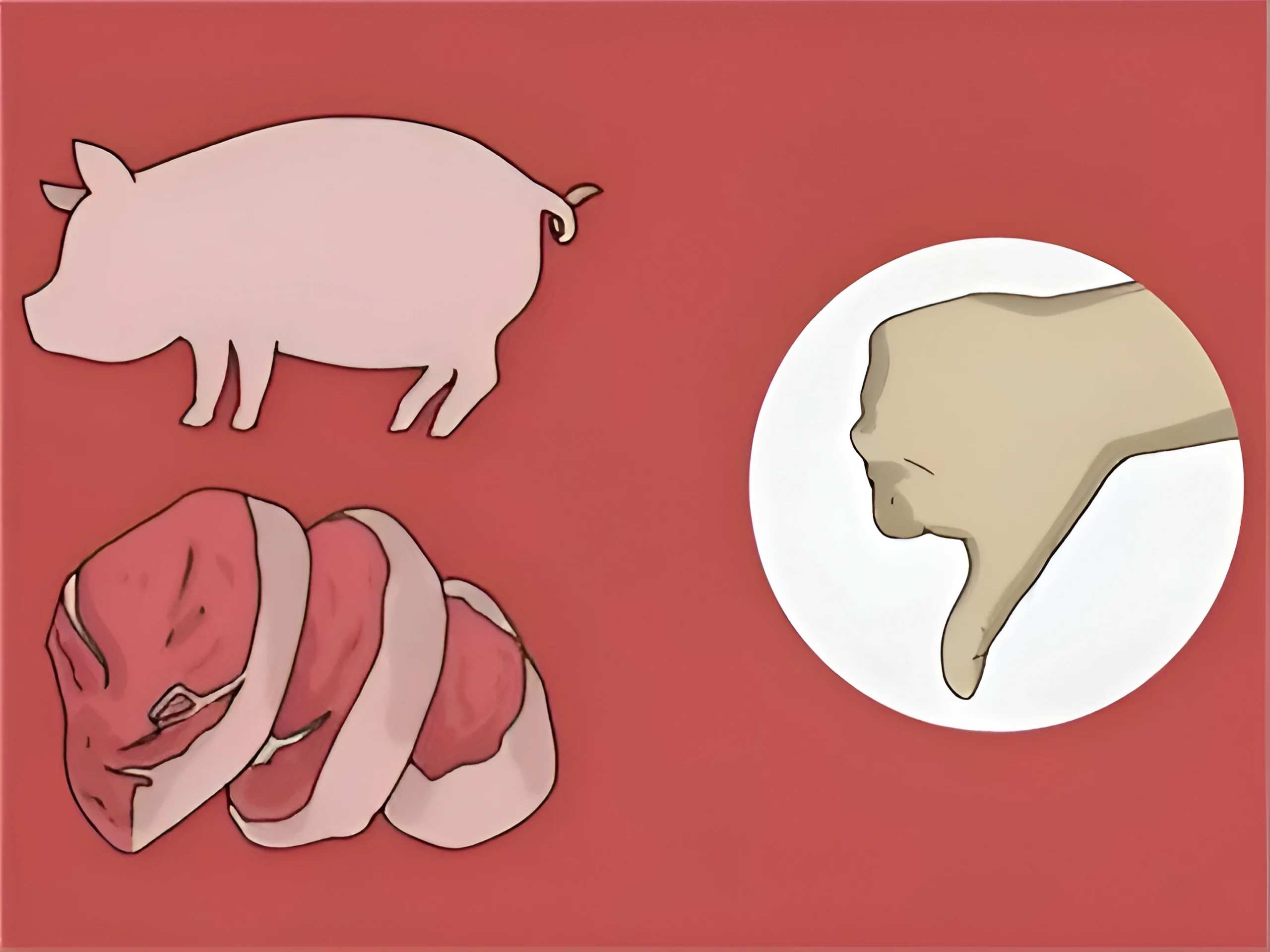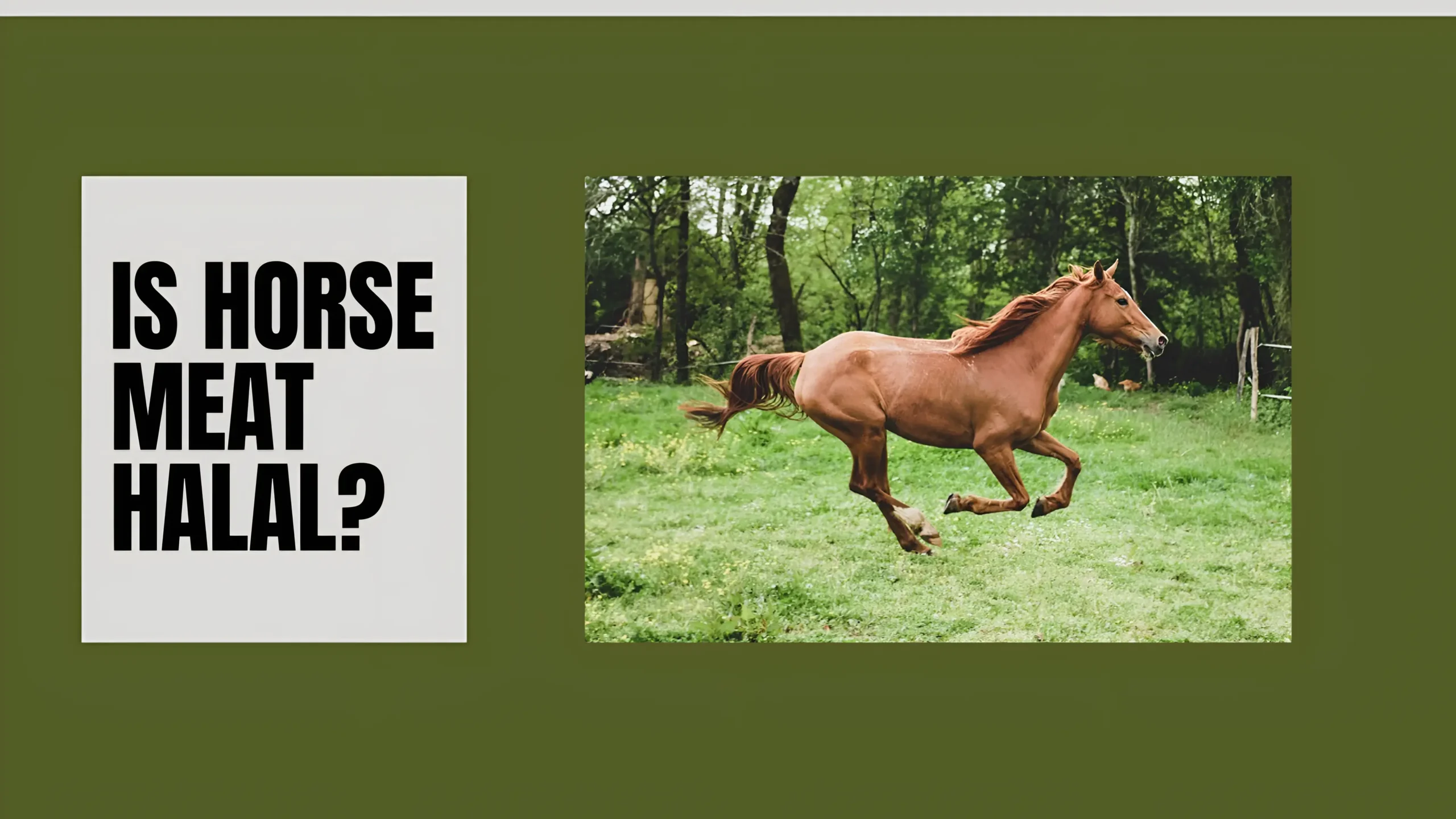Top 10 Reasons why pork is haram in Islam
The Abiding Prohibition: 10 Reasons and Wisdoms Why Pork is Haram in Islam
In the grand fabric of world religions, food laws tend to be a foundation of practice, faith, and identity. From the Jewish kosher laws to the vegetarianism found in some Hinduism and Buddhism, what one eats is often linked to his or her spiritual life. In Islam, this framework is referred to as halal (acceptable) and haram (prohibited). Perhaps the most famous and clear-cut of all Islamic dietary prohibitions is the avoidance of pork.
For more than 1.8 billion Muslims globally, this is a non-negotiable aspect of their belief system. But why?
To the external onlooker, the ban may appear capricious. To the faithful, it is a matter of divine decree. The consumer’s request for the “top 10 reasons” must be addressed with sensitivity. In Islamic theology, there is really only one reason: God (Allah) has commanded it. The ban is an act of submission, or Islam, in its most unadulterated sense.
Yet, for centuries, scholars, theologians, and scientists have investigated the hikmah—the God’s wisdom—that could be behind the command. These “wisdoms” are not the why behind the forbiddance, but the useful effects and perceivable facts, which substantiate the faith of the believer in the command.
This paper will explore the 10 main reasons and wisdoms, beginning with the ultimate theological foundation and moving on to the spiritual, bodily, and historical aspects of why pork is haram.
1. The Ultimate Reason: A Direct Divine Command (Ta’abbud)
The ultimate, first, and adequate reason why Muslims shun pork is Ta’abbud—an act of obedience and worship of a direct command given by Allah. In Islamic law, commands are obeyed because they come from the Creator even if the wisdom behind them is not comprehended.
The essence of religion is taslim, submission. A Muslim’s relationship with God is one of creation to Creator, having faith that His commands are based in infinite wisdom, mercy, and knowledge, even if that knowledge is not fully available to human beings. If pork were scientifically found to be the healthiest food on earth, it would still be haram simply because Allah has made it so. This test of faith—compliance without requiring a complete scientific analysis—is the nature of submission. The other “reasons” on this list are merely observations which tend to add weight to the wisdom of this divine law.
2. The Legal Proof: Explicit Qur’anic Injunctions
The exclusion of pork is not the subject of academic interpretation or discussion; it is stated clearly, oftentimes, and without ambiguity within the Qur’an, the primary religious text of Islam. This is the legal basis, and it occurs at least four different verses:
- Surah Al-Baqarah (2:173): “He has only forbidden to you dead animals, blood, the flesh of swine, and that which has been dedicated to other than Allah.”
- Surah Al-Ma’idah (5:3): “Prohibited to you are dead animals, blood, the flesh of swine, and that which has been dedicated to other than Allah.”
- Surah Al-An’am (6:145): “Say, ‘I do not find within that which was revealed to me [anything] forbidden to one who would eat it unless it be a dead animal or blood spilled out or the flesh of swine—for indeed, it is Rijs [filth/abomination]—or [that which is] an impious offering, dedicated to other than Allah.
- Surah An-Nahl (16:115): “He has only forbidden to you dead animals, blood, the flesh of swine, and that which has been dedicated to other than Allah.”
The recurrence throughout various chapters, unfolded at various junctures in the Prophet’s mission, emphasizes its importance. The wording is uncompromising, leaving no scope for misinterpretation.
3. The Prophetic Confirmation: The Sunnah
The Sunnah—teachings, doings, and words of the Prophet Muhammad (peace be upon him)—is the second source of Islamic law, expounding on and affirming the Qur’an. The Prophet Muhammad not only upheld this prohibition but also emphasized its multifaceted seriousness.
He is quoted as having said that Allah prohibited the commerce of intoxicants, dead animals, and pigs. This expands the prohibition from merely consuming to profiting from it. This prophetic affirmation makes the law firm, bringing it into complete unity with the elements of Islamic existence and jurisprudence. It’s not a sentence in a book; it’s a lived, taught, and enforced practice since the early days of the faith.
4. Spiritual Impurity: The Concept of ‘Rijs’
The Qur’an itself offers a strong hint about the underlying wisdom. In Surah Al-An’am (6:145), it mentions pork as Rijs, a strong Arabic word which means “filth,” “abomination,” “uncleanness,” or “impurity.”
This “filth” exists in two aspects. The first one is physical, which will be discussed in the health-related arguments. The second, and more significant, is spiritual. In Islamic theology, the spiritual and physical are intertwined. Eating that which God has placed under the category of “filth” is felt to pollute the nafs (the self or soul), the heart, and the spiritual state. It is felt to numb spiritual sensitivity, make the heart dark, and put up a wall between the individual and his Creator. This is the reason why halal isn’t merely the kind of food, but also the purity of its whole process.
5. The Pig’s Nature and Diet: The ‘Scavenger’ Argument
This observation is a direct extension of the definition of Rijs. Numerous scholars and intellectuals refer to the natural physiology and diet of the pig as a physical expression of its spiritual uncleanness. Pigs are well-known as scavenging omnivores. They will eat nearly anything, including feces (coprophagy), carrion, and rubbish.
Though diets have been altered by modern industrial farming, the animal’s innate character is the same. Under pre-modern conditions, such scavenging made the pig a living repository of filth and disease vector. Here is at work the theological law of “you are what you eat.” The notion is that eating an animal with such indiscriminate and “filthy” appetites is unbefitting a believer who aspires to a condition of spiritual and corporeal purity, or taharah.
6. Grave Parasitic Infection Risks
Here we step from the strictly theological to the scientific hikmah (wisdom) of modern science. For centuries, far earlier than the invention of microbiology, eating pork was a well-known health hazard. The most infamous of these is Trichinosis.
The disease results from the Trichinella spiralis roundworm. When an individual eats undercooked pork with such larvae, the larvae develop in the intestines, mate, and then migrate into the muscles, such as the heart, diaphragm, and brain. This can result in serious symptoms: severe muscle aching, fever, face swelling, and in a few cases, paralysis or death. Although new cooking practices and agricultural techniques have alleviated this risk in developed countries, it has not been eradicated, and it is still a serious threat in most of the world.
Another significant hazard is the pork tapeworm, Taenia solium. Eating undercooked pork containing tapeworm cysts can infect the intestines. Much more pernicious, though, is the incidental ingestion of the tapeworm eggs (from contaminated food handled by an infected individual), which can cause cysticercosis—a ghastly illness in which larvae develop into cysts in the brain, muscles, and eyes, resulting in seizures, neurological impairment, and blindness.
7. Zoonotic Viruses: A ‘Mixing Vessel’ for Disease
In addition to parasites, pigs are biologically distinct in their vulnerability to viruses from birds and humans alike. This has given them the morbid designation of “mixing vessels” for emerging, dangerous forms of disease.
The respiratory tract of a pig contains receptors that are capable of binding both avian (bird) flu viruses and human flu viruses. If, at the same time, a pig is infected with both, the genetic material of the two viruses can recombine (in a process known as “antigenic shift”) to form a completely new, highly infectious virus that can be passed back to humans.
The best known is the 2009 H1N1 “Swine Flu” pandemic, which is traced back to pigs and caused hundreds of thousands of deaths globally. Pigs are also carriers of other viruses, including the Hepatitis E virus (HEV), which can be transferred to humans by eating raw or undercooked pork liver. In this view, the divine prohibition can be regarded as an exceptionally wise, preventive public health ordinance.
8. Physiological Constituents: Fat, Cholesterol, and Toxins
Although excessive consumption of any meat is unhealthy, pork has special physiological issues. Pork is commonly a highly fat meat, especially in saturated fats. High-saturated fat and cholesterol diets, which are plentiful in items such as bacon, sausages, and pork ribs, are a firmly established risk factor for cardiovascular disease, atherosclerosis (hardening of the arteries), and obesity.
In addition, one of the arguments for prohibition in favor of the pig is cited by its digestive system. A pig rapidly digests its food (in approximately 4 hours) compared with a ruminant such as a cow (more than 24 hours). The reasoning is that the complex, slow stomach system of a cow (with four-chambered stomach) is more efficient at filtering out and removing toxins, while the fast, uncomplicated system of a pig could pass more of them into its meat. This, coupled with its scavenging nature, makes its flesh a possible repository of poisons that are transferred to the consumer.
9. A Test of Faith and Devotion
This argument differs from Reason #1 (Divine Command). Whereas the former is concerned about the origin of the command, this one is concerned about the purpose of it. The ban against pork is a straightforward, day-to-day, and unequivocal test of a believer’s faith.
In Islamic law, some prohibitions are rational and self-evident (e.g., murder or theft). Others are devotional or ritual (ta’abbudi), and the wisdom is not paramount. The prohibition of pork, particularly for Muslims who reside in non-Muslim communities where the food is common, becomes an act of faith defining.
Choosing to abstain when a food is readily available, socially acceptable, and heavily marketed is a powerful, conscious decision. It is a constant reminder of one’s identity as a Muslim and one’s commitment to prioritizing God’s law over cultural pressure or personal inclination. It builds discipline (taqwa) and reinforces the believer’s spiritual path.
10. Abrahamic Precedent and Continuity
Lastly, Islam does not present itself as a novel religion but rather as the fulfillment and revitalization of the initial monotheistic religion of Abraham, Moses, Jesus, and all other prophets. The ban on pork is not specific to Islam; it is a continuity with earlier divine revelations.
In the Hebrew Bible, the source scripture for Judaism, the ban is equally clear:
- Leviticus 11:7-8: “And the swine, though he divide the hoof, and be cloven-footed, yet he cheweth not the cud; he is unclean to you. Of their flesh shall ye not eat, and their carcase shall ye not touch; they are unclean to you.”
This “impure” status is echoed in the Islamic “Rijs.” To Muslims, this uniformity is evidence of a single, divine origin. It supports the idea that God, in His wisdom, has alwaysconsidered the pig to be unpresentable for human use for His faithful. Although Christianity broke with these food laws later on, the Islamic ban is viewed as a return to this initial, divinely-prescribed norm.
Conclusion
The Islamic ban on pork is a rich and complex edict. It starts and ends with one simple yet potent explanation: God ordered it to be done. This act of submission is the cornerstone of a Muslim’s belief.
The other “reasons” that follow—the explicit Qur’anic passages, the Prophet’s confirmations, the spiritual principle of Rijs, and the tangible wisdom of science—all act to validate and enhance this initial directive. Its scavenging nature, its well-documented history of carrying catastrophic parasites such as Trichinella and tapeworms, its use as a “mixing vessel” for pandemics, and its fat composition all contribute to a portrait of an animal that is, in most respects, physically and spiritually unsuited for one who wishes to live life in purity.
Finally, to a Muslim, not eating pork is not a sacrifice. It is a characteristic act of faith, a testimony of identity, a surrender to God’s wisdom, and an entry into a 1,400-year-old tradition that connects bodily health, spiritual well-being, and absolute obedience to God.
For more like this visit: Hilalinfohub




Post Comment